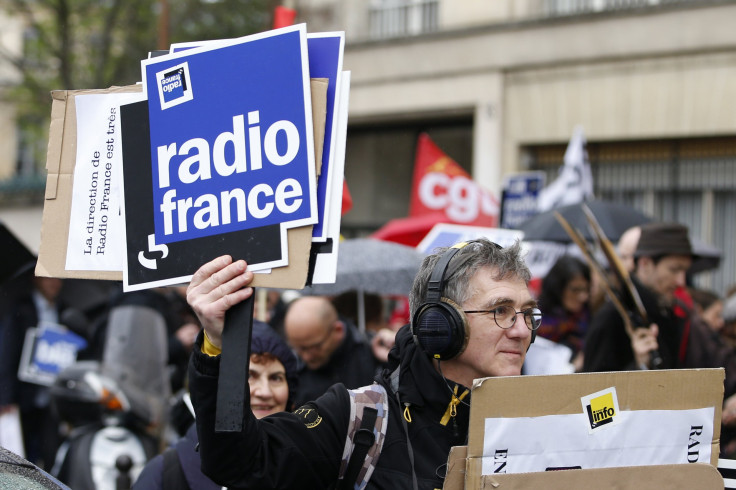Radio France Strike: Work Stoppage Now Longest Ever At State-Owned French Broadcaster

Employees at France’s public radio broadcaster, Radio France, went on strike Monday for the 19th straight day, marking the longest work stoppage in the institution’s history.
The striking technicians, ancillary staff and some journalists represent about 7 percent of the broadcaster’s 4,600 person full-time workforce, according to Le Monde. Nevertheless, the labor dispute has significantly disrupted programming. In some cases, Radio France-operated stations are replacing news broadcasts with musical interludes from a looping “strike playlist.”
The roots of the dispute lie in a budget shortfall. Management says Radio France faces a 21.3 million-euro deficit this year and has proposed voluntary layoffs of up to 300 workers, in addition to cost-saving measures that include merging the radio’s two symphony orchestras and two choral ensembles. Last Friday, French Minister of Culture Fleur Pellerin said the proposed job cuts were “without a doubt necessary.”
Strikers, however, oppose any job or service cuts. (“Killing an orchestra is like burning books,” read a Sunday statement from one of the unions representing workers.) They also point to money they say the broadcaster wasted on renovations at its iconic headquarters in western Paris. Reconstruction projected at 175 million euros is now forecast at 584 million, Britain’s Independent noted. Meanwhile, Radio France’s new executive was recently found to have spent 100,000 euros redecorating his private office on the building’s top floor.
The labor strife marks the latest episode of trade unions' dissatisfaction with François Hollande's Socialist Party government. In February, the French Parliament approved a set of largely symbolic but highly controversial labor reforms that among other things pave the way for more businesses to open on Sunday.
In the aftermath of the recession, budget shortfalls and austerity measures have hit public radio across Europe. The BBC is halfway through a cost-cutting plan that will shed 2,000 jobs by 2017. In 2013, Greece’s pro-bailout government abruptly closed the state’s public television and radio broadcaster, laying off 2,500 employees, before launching a smaller replacement station the following year. In February, the board governing Italy’s state-owned broadcaster, RAI, approved a three-year cost-savings plan worth 70 million euros, which is expected to result in layoffs.
© Copyright IBTimes 2025. All rights reserved.





















